What Are Dental Implants?
A dental implant is a replacement for a missing tooth. It is basically a post that supports a new crown or cap. Dental implants are created by inserting a titanium or zirconia post into the jaw to support a new crown (cap). If you have missing teeth, the only way other ways to replace them are with a fixed bridge or partial, both of which have disadvantages. Implants provide a treatment solution that won’t slip or shift around in your mouth like a partial denture will, essential for comfortable eating and speaking.
Why Do Patients Prefer Dental Implants?
Dental Implants are the best alternative for replacing missing teeth due to their natural look and feel. With Implants you can chew and floss again just as you would with a natural tooth. Here are some advantages that implants have over other options like partial dentures and bridges:
- Improved appearance, speech, and comfort since dental implants are designed to fuse with bone and function as real, permanent teeth!
- Easier to eat with than traditional tooth replacement treatments.
- Improved oral health due to lack of appliance to clean and care for as well as less obstruction from cleaning nearby teeth.
- A more conservative approach that leaves nearby teeth intact.
A Good Treatment Alternative for Root Canals and Weakened Teeth
Teeth become weakened and stressed when they are worked on too many times. This can cause root canals which are basically infections in the tooth due to multiple drilling visits or deep decay. Root canals can also be caused when a tooth breaks, fractures or from clenching or grinding. When you do a root canal you further weaken the tooth by removing the nerve and blood supply and additional tooth structure. At some point when enough of the above events occur, i.e. root canals, multiple dental visits and bite stresses, the tooth becomes so weakened that they are no longer good teeth. This renders them as poor candidates for additional dental work. You are more likely to have additional tooth problems or pain, costing more in time and money due to unsuccessful or failing re-treatment of the tooth.
If you have an existing root canal often they become reinfected over time. This is almost always a surprise to patients as they thought the root canal was a final treatment. When this happens the only treatment to correct the infection is to redo the root canal or remove the tooth. The problem with retreating an existing root canal is that it will fail again, and faster the second time, sometimes within a few years. This is because the tooth has been so weakened by this point that the treatment often doesn’t work. There is no substitute for a real tooth, however, once a root canal has become re-infected it may be more cost-effective to pull the tooth rather than deal with the possibility of future re-treatments. Dental Implants offer a long-term, durable solution that is more conservative than bridges. Bridges require that adjacent, often healthy teeth, be ground down so that crowns and be made to support a replacement tooth.
Dental Implant Treatment Process
The entire implant process depends on different factors but generally takes about four to six months to complete. Initially your dentist will use your radiographic information to determine whether there is sufficient bone to do the implant without grafting. However, if grafting is necessary, it will be recommended as a part of the overall treatment. Different types of bone grafting materials should be taken into consideration, so it’s important to find out all of your options before proceeding. Implants can be expensive so it’s important that you get the result that you want. This includes the type of implant and crown that are placed. There is also a wait time in between steps from when the implant goes in to when it’s ready for the crown or cap to be placed on top of it. Ask for more information or get a second opinion if you still have questions.
How long does the entire implant process take?
It takes between 30-60 minutes to place a dental implant. Sometimes you can put the crown on during the same appointment, but sometimes it is safer to wait until the implant integrates before putting the crown on. This usually takes 3 months.
Bone Grafting
If there is not enough bone or density of bone to place the implant, you need some form of bone grafting. There is some research that shows bone from cows and even cadaver bone can increase inflammation during the healing process, essentially resulting in scarring in the bone. This can produce weaker bone that can result in more implant failures, in my opinion.
This scarring in the bone can be minimized by using Platelet Rich Fibrin (PRF), which is a bone substitute derived from your own blood. The procedure is done by doing a regular blood draw and then spinning your blood in a centrifuge to concentrate the healing factors, immune cells and stem cells naturally found in your body. Your blood is the best form of bone grafting and PRF allows us to maximize its benefits to increase bone volume as well as bone quality. This will be beneficial even if you decide not to have an implant later.
The health of the bone is actually very important because the bone needs proper blood supply to heal correctly. As mentioned above, it also needs to be properly mineralized, without prior scarring from extractions, root canals and bone grafting materials.
How Successful is Dental Implant Treatment?
Research has shown implants to be viable and to have a high rate of success. Modern materials and techniques have made implants more predictable having the potential to last for decades if cared for properly.
The first recorded dental implant case was in 1965 and many of these early implants were still in place decades later. Traditionally dental implant posts have been composed of titanium, but more recently Zirconia Implants have taken the stage as a more bio-compatible option.
With this said, there are patients with chemical sensitivities, who have immune issues, who smoke, have diabetes, or are on certain medications. These patients need to take care before placing implants because the failure rates are higher when these conditions are present. I have also observed that people with metal sensitivities, poor oral hygiene, acidic mouths or systemic inflammation need to take extra care when placing titanium implants, specifically.
What Causes Dental Implants to Fail?
The same factors that cause you to lose teeth can cause you to lose a dental implant as well. Some of the more common causes of tooth and implant failure are bite forces such as clenching and biting, an imbalanced bite, health conditions like diabetes, lifestyle habits like smoking, some medications and bacteria populations that are present in the mouth. Some of the above causes of implant failure do not cause pain or swelling.
The same bacteria that causes gum disease and tooth loss can eventually lead to implant loss as well. This happens by way of erosion of the bone supporting your teeth and implants. The only way to be sure about the kinds of bacteria in your mouth is to get it tested. The best lab test, Oral DNA Lab, usually costs around $150. A saliva sample is taken by your dentist and sent in for results.
Many of the above issues can be addressed and resolved through nutritional support and sometimes blood testing is beneficial to see what risk factors are present so it can be addressed before implants are placed.
Testing for Harmful Bacteria with a Microscope Evaluation
A more convenient way to test for harmful bacteria is with a microscope evaluation in our office. This is the best solution for many patients because it can be done during a dental appointment, saving time and money. In comparison with the above test, our patients pay $75 for the microscope evaluation, so it can be much more affordable.
By taking a sample from your gum line and putting it under the microscope, you and your dentist will be able to see the amounts and types of bacteria present in your mouth. Most often test results show the presence of damaging bacteria. The good news is that there are very simple and inexpensive ways to treat and decrease these bacterial populations.
Expensive deep cleanings are often unnecessary because proper home care can be sufficient to solve the problem. You’ll receive a customized home care program and appropriate, conservative in-office treatment will be recommended.
Harmful bacteria should be treated before you have dental implants to improve the overall health of your teeth, not only your implants. It is important to minimize inflammation in your mouth before proceeding with any major dental treatment. You’ll feel better as well.
Examples of the Zirconia Implant Treatment Process
Dental Implant Treatment in San Diego and Encinitas
At Integrative Dentistry we strive to offer the best options for patients looking to restore their smiles with bio-compatible materials. Integrative Dentistry offers treatment plans for dental implants to the San Diego and Encinitas areas.
Further Reading on Dental Implants
- The Hidden Reason Why Teeth and Implants Fail (Part 1)
- The Hidden Reason Why Teeth and Implants Fail (Part 2)
- The Hidden Reason Why Teeth and Implants Fail (Part 3)
- The Hidden Reason Why Teeth and Implants Fail (Part 4)
- Implant Meetings Showing Titanium Implant Failures & What You Need to Know
- 5 Things You Wanted to Know About Implants (Part 1)
- 5 More Things You Wanted to Know About Implants
- 5 Additional Things to Consider Before Getting an Implant
Dental Implants Articles
Should I Treat My Root Canal Infection or Extract my Tooth?
No one wants to lose a tooth. This is very natural and normal. Thanks to the advent of Photon Induced Photoacoustic streaming (PIPS), a technology licensed to Fotona utilizing the Er:Yag laser, we can now eliminate bacteria in root canal teeth. This is the good news, and a game changer in root canal therapy.
What To Do About Old Root Canal Infections – A Case Study
For those of you who were told that your root canal should last a lifetime, this has not been my experience. The fact is root canals fail and they usually fail more often than is realized by both doctor and patient.
Finally, An Integrative Dentist’s Opinion on Root Canals: The Good, the Bad, and the Ugly
My book on root canal infections that are hidden and not being seen by your dentist is coming out in 2018. It delves into this issue of infected root canals, how they come about and what to do about them. The reason I’m writing this book is that I’ve seen evidence in my practice that a sizable percentage of previously done root canals are actually still infected or have become reinfected over time. I will be presenting evidence of this over the coming months, but suffice it to say the percentage of undiagnosed infections due to root canals is alarmingly high. It is enough of a problem that I find myself having to speak up and start to document it with current cases.
Wait a Minute! Isn’t a Root Canal Supposed to Cure My Infected Tooth?
Yes, at least that is what you are told by your well-meaning dentist. What you are not told is that the tooth you are saving by doing a root canal no longer has a blood supply or nerve.
What Causes Root Canal Infections and Failure?
What causes existing root canals to become infected and fail? In the photo to the right you can see a common presentation of an infected tooth. In this case, an old root canal that has failed is draining pus and infection from the tooth. As the...
Inflammation May Cause Failure in Extractions, Root Canals and Implants: A Case Study
Have you put off doing the dental work you need because you are afraid it might fail? You may have had the right idea! Have you heard that all root canals are bad for you? Or that a titanium implant blocks the meridian flow, or can corrode because of the acids in your mouth? Or that extractions are bad for you because they might lead to cavitations or dry sockets? In fact, all the above are possible. If you are immune compromised in any way, pay attention, because what you are going to learn here can make a difference between success and failure when it comes to dental surgery of any kind, whether it be root canals, implants, extractions or even gum procedures like deep cleanings.
Root Canal vs Extraction: Are Root Canals Toxic to My Body? A Review of Weston Price’s Research 100 years later
Did Dr. Price have it right when he put out his research on infected root canals and the focal infection theory nearly 100 years ago? Over the next few weeks, I will be reviewing the seminal work on root canals and how they affect systemic health. I’m often asked by my patients whether it’s better to get a root canal vs an extraction. I will be attempting to answer this question by taking a deep dive into the research. However, I will not just be looking at one side of the issue. I will be looking at it from all angles and summarizing what opposing sides have to say about this hotly contested subject within dentistry vs alternative health world. Needless to say, opinions vary wildly from one extreme to the other.
How to Resolve a Root Canal Infection – A Pardigm Shift
A lot of patients come to me seeking help in trying to resolve root canal infections. The problem is that the basic protocol for treating root canals hasn’t changed in the last 30 years, ever since I got out of dental school. There have been improvements and tweaks, but we are still using the same basic approach, strategies and tools.
What’s the problem in doing root canals?
What is Holistic Dentistry and What Makes It Different?
Holistic dentistry and biological dentistry refer to two different aspects of integrative dental care. Generally speaking the term ‘holistic’ refers to the fact that the body is one whole or holistic system. Common sense dictates that the mouth, the primary pathway...
What You Need to Know About Ceramic vs Titanium Dental Implants
When I lecture on holistic dentistry, I'm often asked, 'What are ceramic dental implants?' As you can see in the picture to the right, ceramic implants are white and titanium implants are black and metallic looking. In the future I feel that ceramic implants are...
Bio-Friendly, Non Metal Fillings
What do health conscious people need to know about non metal fillings like composites? Here is a quick rundown: Whenever possible avoid metal (especially mercury) for restorations like fillings or crowns Use composites (white filling material) that have no BisPhenolA...

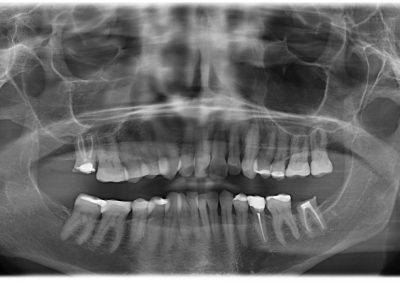
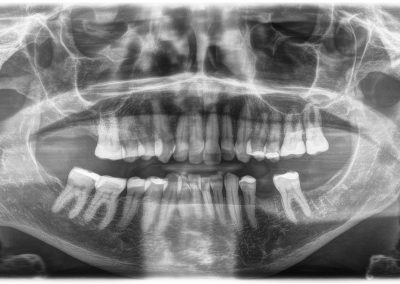
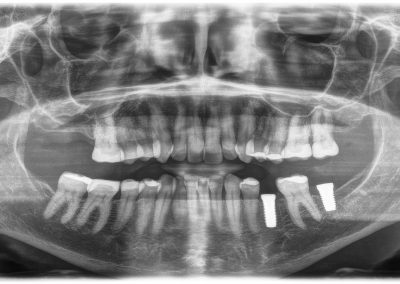
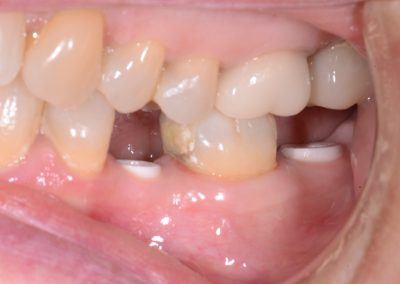
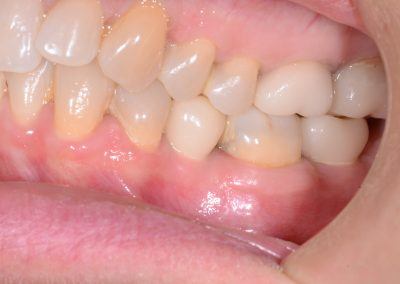
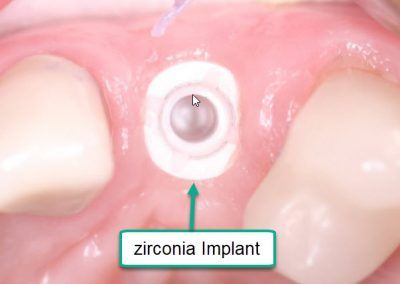
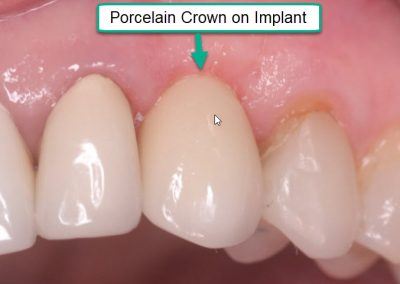
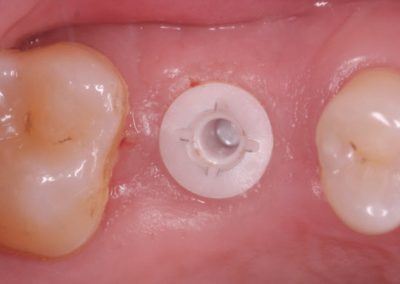
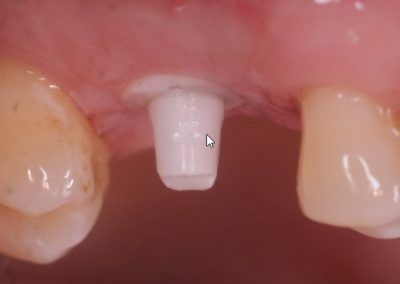
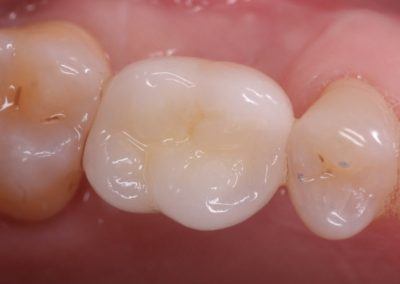
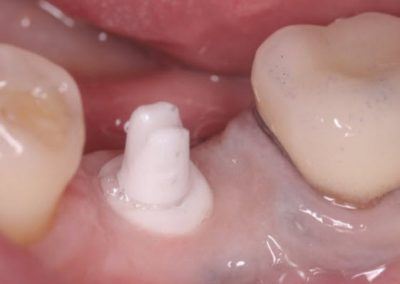
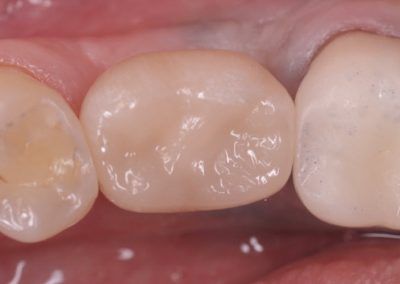
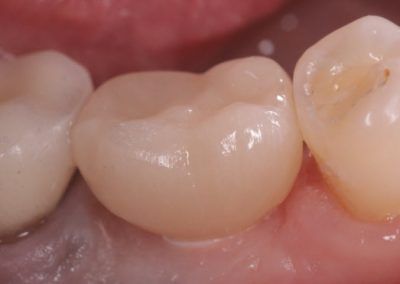
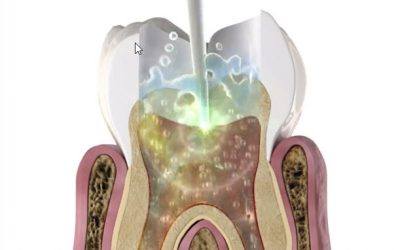
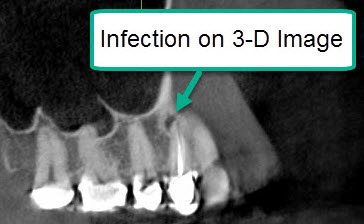
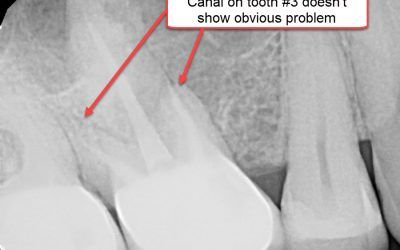
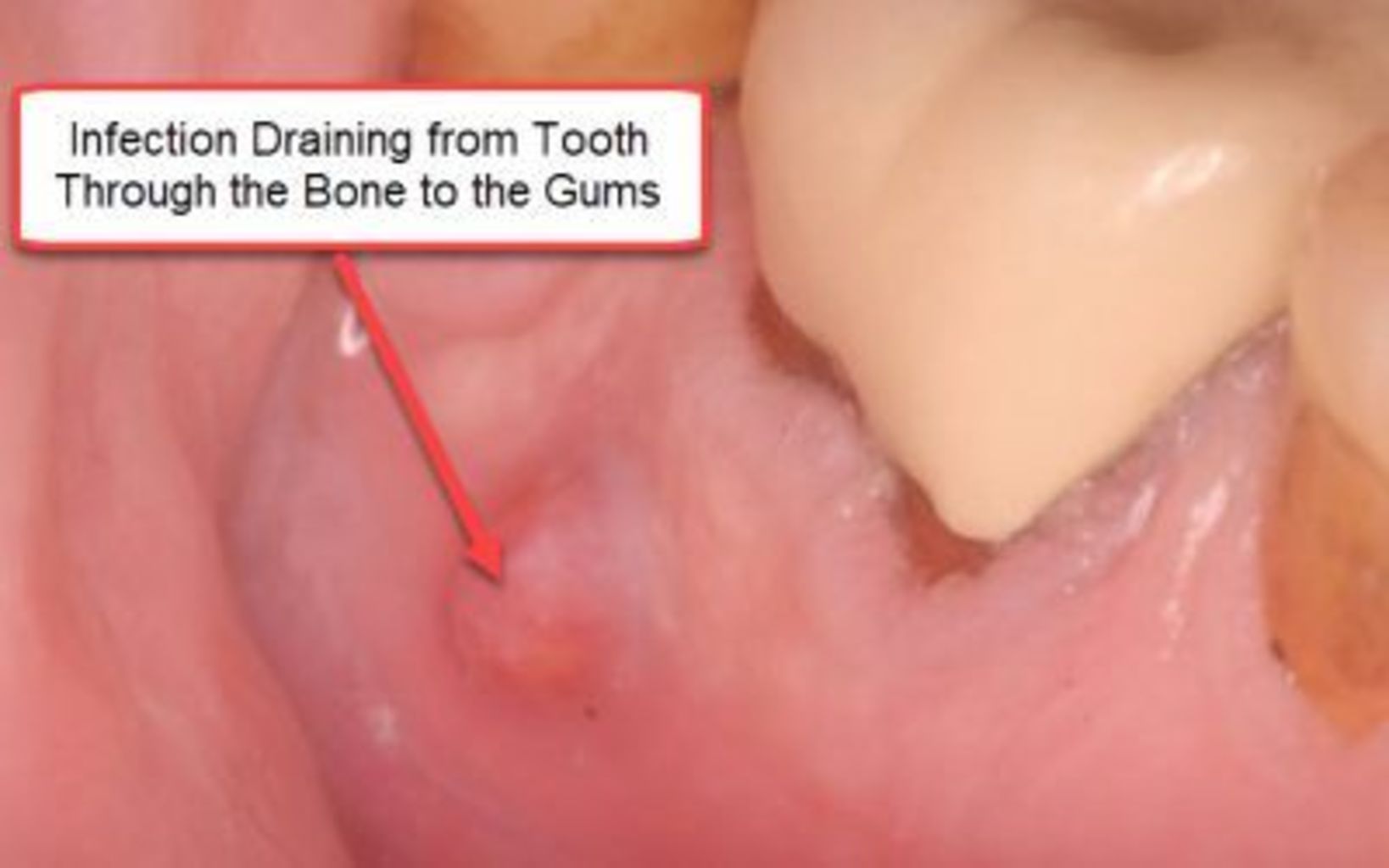
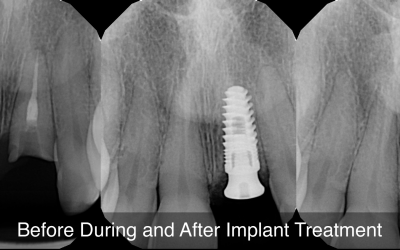

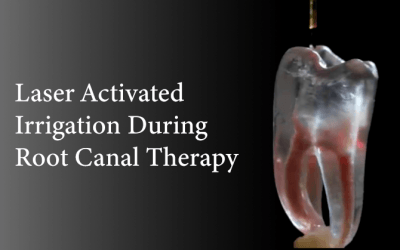

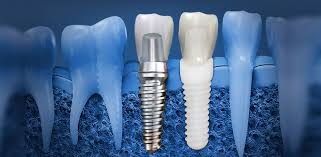
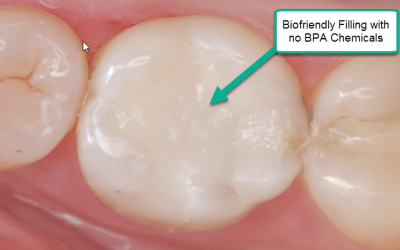
0 Comments